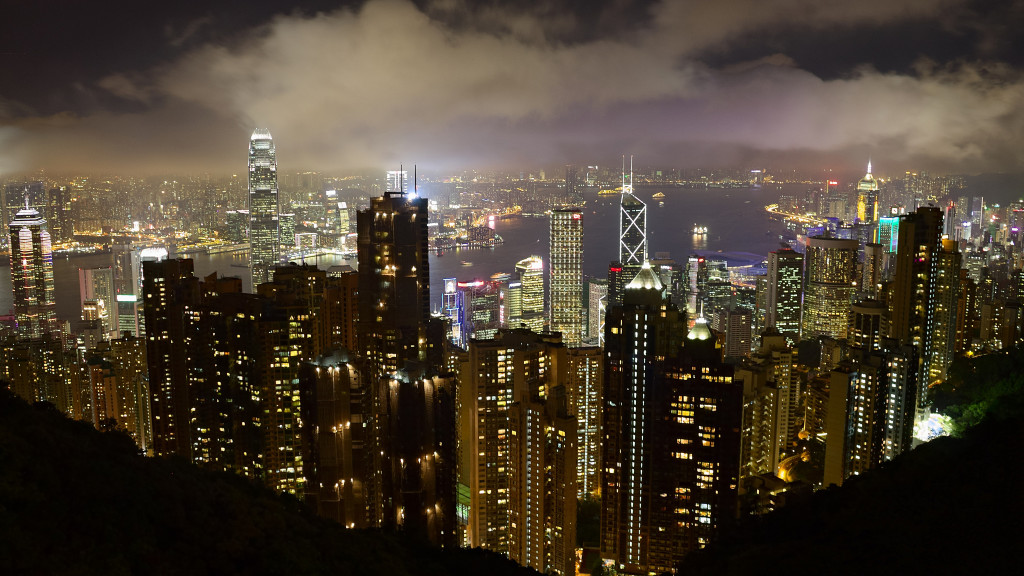The Protests in Hong Kong: What Next?

Over the weekend, police in Hong Kong used pepper spray and teargas against thousands of pro-democracy protesters occupying key areas of the city center. Tensions have been simmering for weeks after China rejected demands for open and direct elections for the region’s next chief executive in 2017. With opposition leaders vowing to wage a campaign of civil disobedience until the decision is reversed, the prospect exists for sustained and potentially violent political upheaval in one of the world’s major financial centers. While the situation is evolving rapidly, certain key dynamics are already becoming apparent. Here are some that bear particular attention:
Gauging Beijing’s Security Response. Events of this weekend will conjure up memories of the violent crackdown against the pro-democracy movement in Tiananmen Square in 1989. While it is important to avoid apocalyptic forecasting, China is not known for restraint when dealing with challenges to its authority and the prospect of a violent crackdown against protesters cannot be ruled out. In such circumstances, Beijing would almost certainly turn to the People’s Liberation Army or paramilitary forces to do its bidding as the loyalty of the Hong Kong Police would not be assumed. Rumors of PLA movements in and around Hong Kong will be rife over the coming days and the appearance of a visible PLA presence on the streets could portend a decision to escalate the level of force used to deal with protesters.
Economic Consequences. Hong Kong is a critical financial bridge between China and the global economy. It almost goes without saying that sustained political upheaval would have significant economic consequences. Hong Kong business leaders have criticized the protest movement in recent weeks for its potential to disrupt Hong Kong’s prosperity. Such criticisms are likely to grow louder, particularly if financial markets react negatively to this weekend’s events. Beijing is likely hoping that protesters will heed the advice from Hong Kong’s business elite in order to avoid the need for more direct intervention. That may, however, be a pipe dream. Nevertheless, economics could actually act as a brake on any overly-aggressive crackdown. With the Chinese economy slowing dramatically in recent months and foreign investment declining appreciably, a Hong Kong-related shock could only exacerbate the situation. Beijing may seek to find some sort of compromise solution in Hong Kong as a way of avoiding a much broader national political challenge from a weakening economy.
Foreign Government Responses. To date, foreign governments have been relatively muted about events in Hong Kong. China has sought to pre-empt foreign intervention by saying that this would constitute interference in what is a domestic political issue. Nevertheless, an increase in violence may force countries to show their hand. For instance, Hong Kong is home to the largest Canadian Diaspora outside of the United States, with almost 300,000 Canadians living in the city. The Hong Kong-Chinese community in Canada has significant political clout and could use that influence to prompt a more vocal response from the Canadian government. The U.S. government could face some difficult decisions as well. On the one hand, Washington will not necessarily want to further complicate a relationship that is already fraught with challenges. However, silence on the issue exposes the Obama administration to fierce criticism from both its left and right given the cocktail of grievances ranging from human rights violations to domestic economic concerns that are always at play in any discussion of U.S. – China policy.
Taiwan. Only last week, Chinese President Xi Jinping suggested that a “one country, two systems” approach similar to that used in Hong Kong could serve as the solution to the long-standing Taiwan reunification question. In hindsight, the timing couldn’t have been worse – an indication that Beijing was caught off guard by the extent to which protests have developed in Hong Kong. While Taiwanese President Ma Ying-jeou rejected the idea out of hand, China’s critics in Taiwan will use events of this weekend to dial up the independence rhetoric and argue that China simply cannot be trusted. The irony is that even if some form of solution is found to the problems in Hong Kong, events of the past weekend could lay the seeds for a period of increased tension in China – Taiwan relations.
There is a lot at stake in Hong Kong over the coming days and weeks. With so much to play for on all sides, the risk is that one party or another will overplay its hand and that the situation will deteriorate dramatically. One thing that is certain, however, is that both Hong Kong’s uneasy relationship with Beijing and the concept of “one country, two systems” face their most significant challenge since Hong Kong reverted to Chinese control in 1997.
David J. Chmiel is a managing director of Global Torchlight, an international political and security risk consultancy. He previously practiced for ten years as a mergers & acquisitions lawyer in the London and Chicago offices of a major global law firm. Follow him on Twitter: @LONDJC.
Photo credit: Nicolas Vollmer

